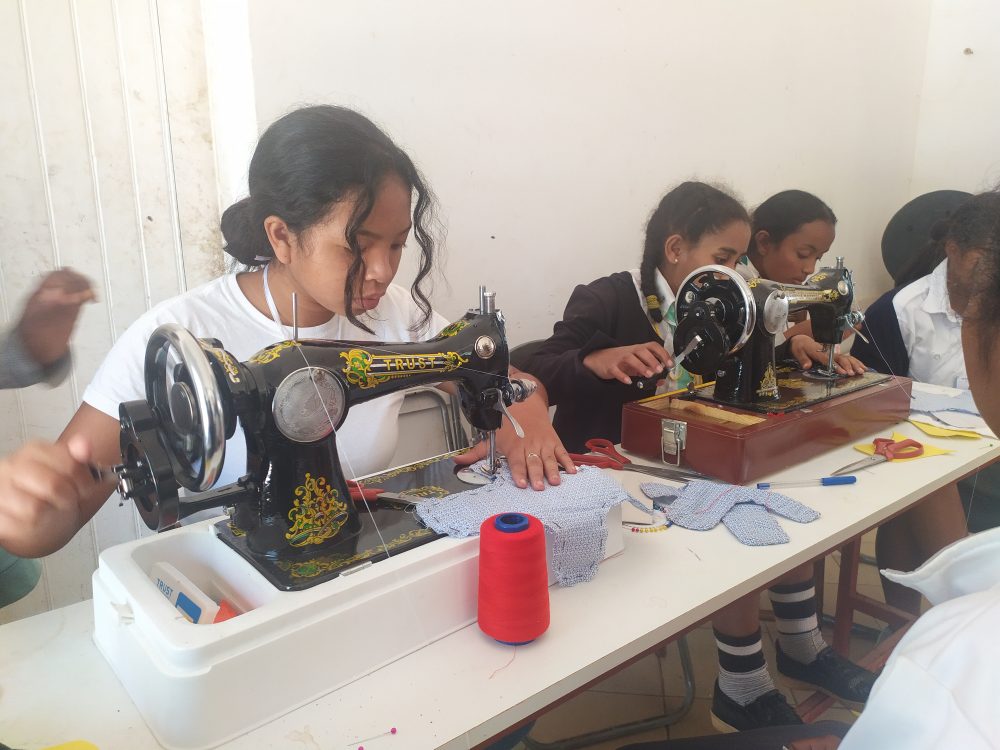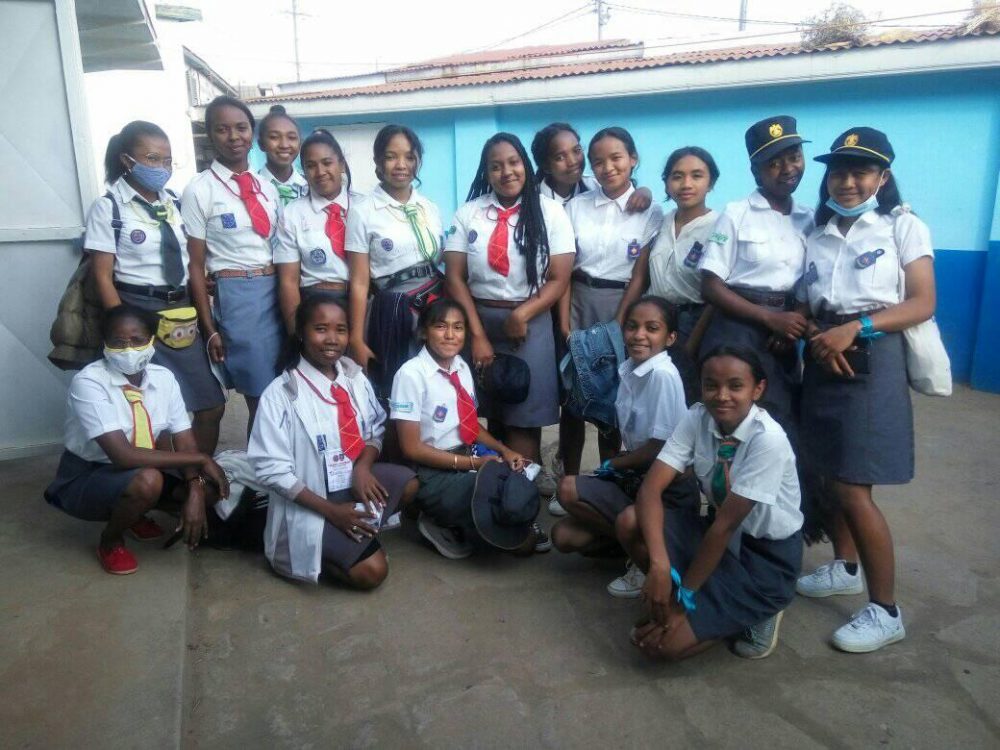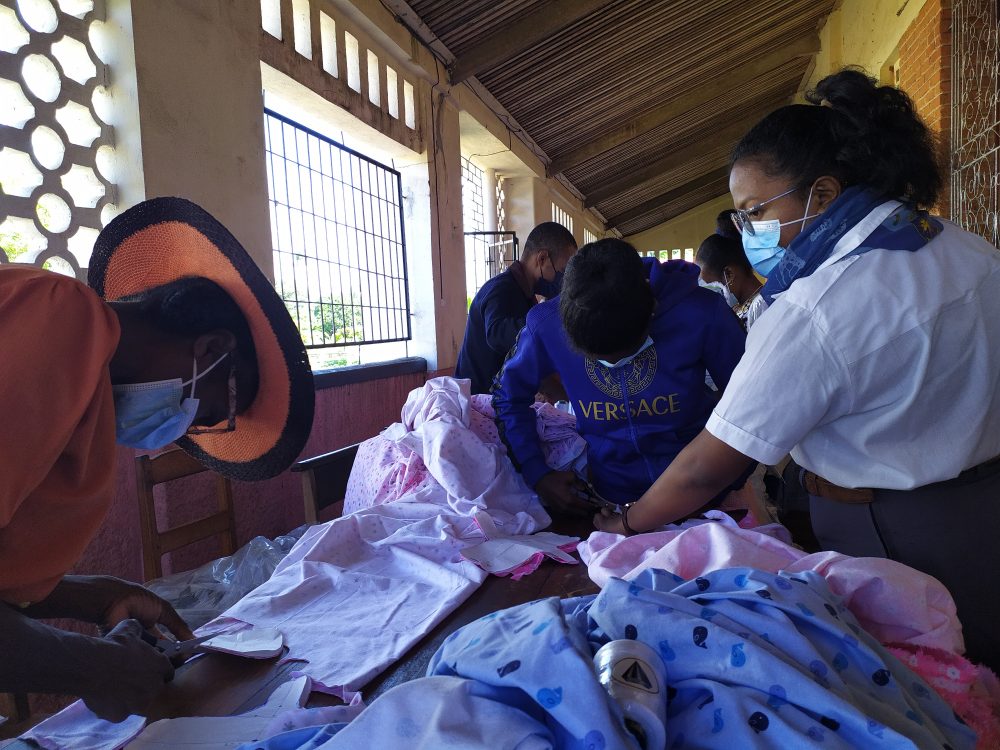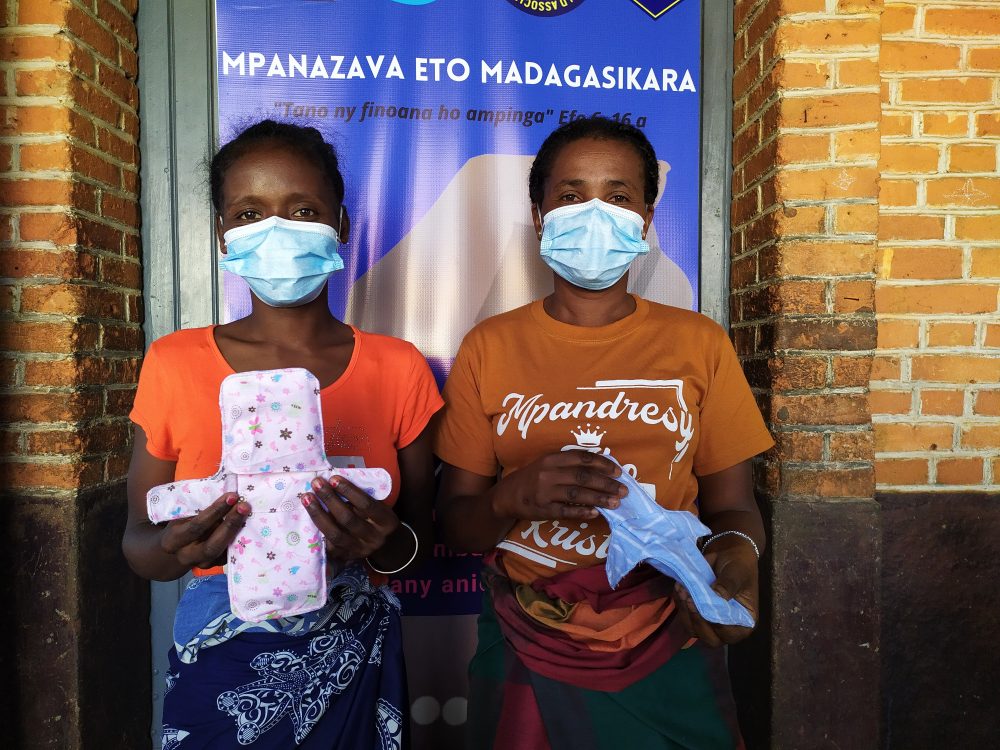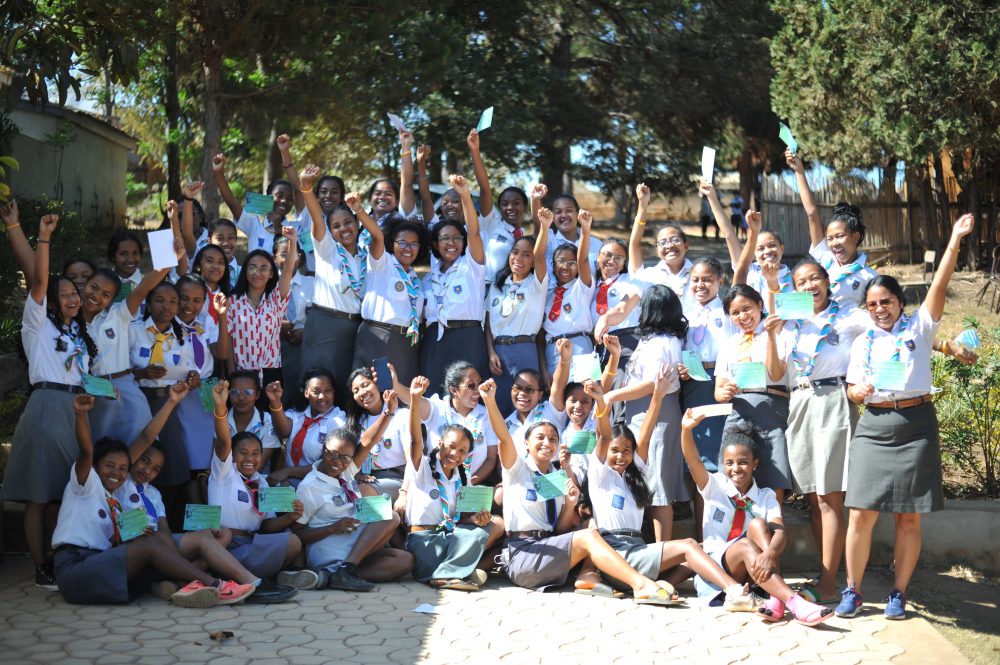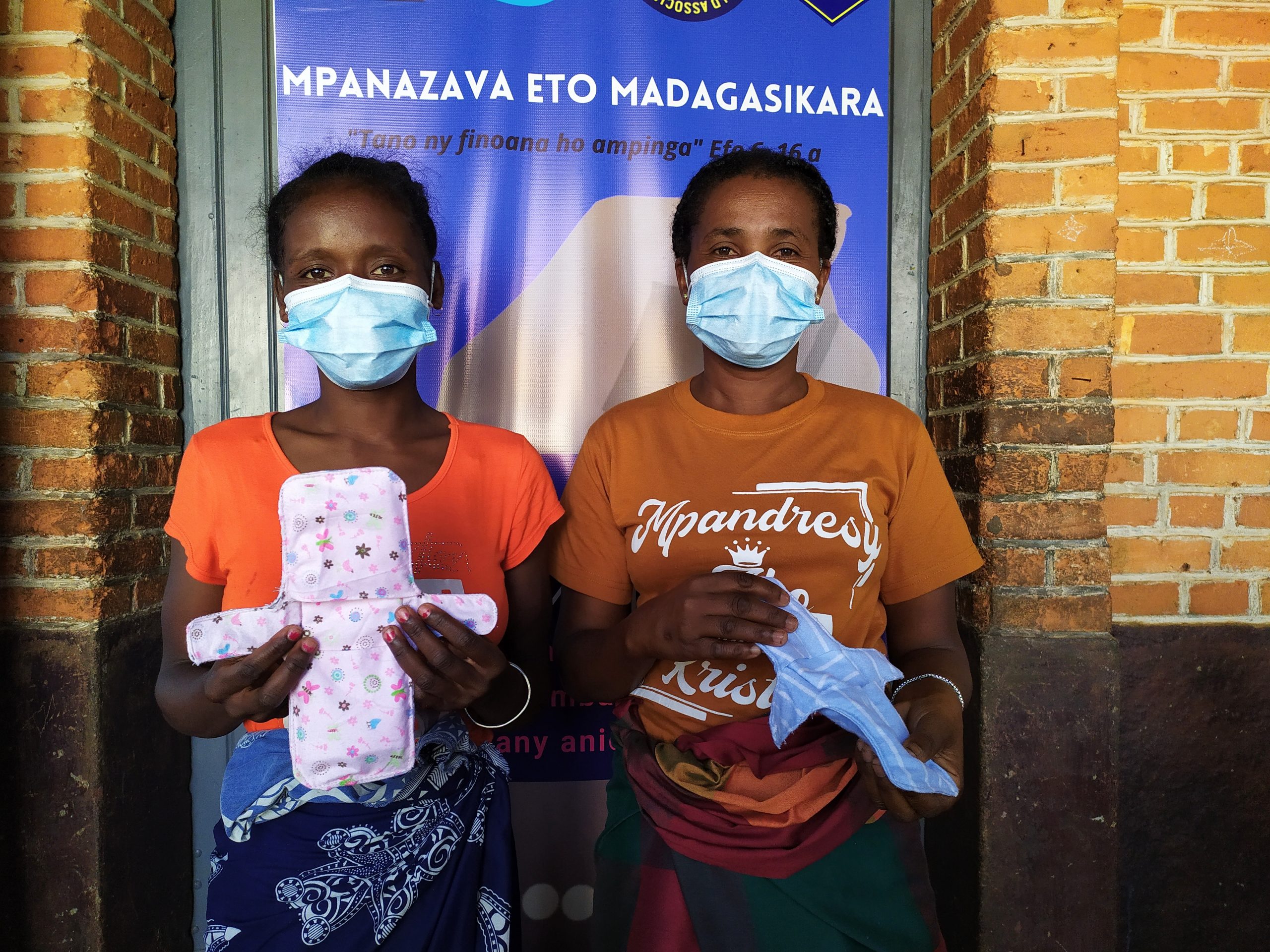
Menstrual Hygiene Management for young people in Madagascar
Girl Guides and Girl Scouts in three regions across Madagascar are supporting 2,000 young people to overcome the impact of the pandemic by providing education on menstrual hygiene and building entrepreneurship capacity.
Due to the negative impacts of the pandemic adolescent girls and young women have experienced higher vulnerabilities considering the disruption and minimized access to health services in Madagascar.
To address this, Mpanazava Eto Madagasikara, a project funded by the Global Youth Mobilization, as part of the World Association of Girl Guides and Girl Scouts (WAGGGS) national projects, is reaching out to young women to provide education on hygiene during menstruation management through the production of washable sanitary napkins. The sanitary napkins produced are also part of the project’s initiative to close the gap on limited employment opportunities by building the entrepreneurship capacity of the project’s participants.
Rising inequalities in access to education, formal and informal work has exacerbated the livelihoods of young people resulting in further strain on their social wellbeing. Mpanazava Eto Madagasikara is working on the promotion of a more equal society by partnering with the Tily Eto Madagasikara Association to include boys and young men sensitization trainings on menstrual health and hygiene.
The project is being delivered in three regions across Madagascar and includes:
- 120 volunteers supporting the implementation of the project, inclusive of 100 production unit managers and 20 commissioners
- Aims to reach approximately 1500 girls and 500 boys and other underrepresented groups
Head of Mpanazava Eto Madagasikara project, Narindra Andriamahefalison, says:
- We raised awareness to more women and distributed washable sanitary napkins for young girls and women in a reception center for disabled in the rural town of Sabotsy Namehana.
- We held a training within an association of disabled and / or having disabled family members.We then formed a center for the manufacturing of washable napkins in Village AFAKA (an NGO that educates children and adolescents from families disadvantaged with the aim of professional integration).
- We were able to train the first wave of advocacy champions in MHM and young leaders too in manufacture of SHL. The new advocacy champions are up to the challenge and started the action during the celebration of World Girls’ Day.
- An MHM camp was held from September 21 to 23, 2021 and during this camp we were able to do more than capacity building of our young unit leaders as well as community action. This camp will be followed in the very near future by the regrouping and training of our group of champions in advocacy.
Together with the other advocacy champions of the Association, a magazine was concocted and sent to different decision makers.
Our first small victory, the Director of the Ministry of Population read our magazine and showed us his support.
The advocacy continues!
To read more about Mpanazava Eto Madagasikara and their work visit:
- Website — https://mpanazava.org/
- Facebook — https://www.facebook.com/mpanazavamadagasikara?_rdc=1&_rdr

